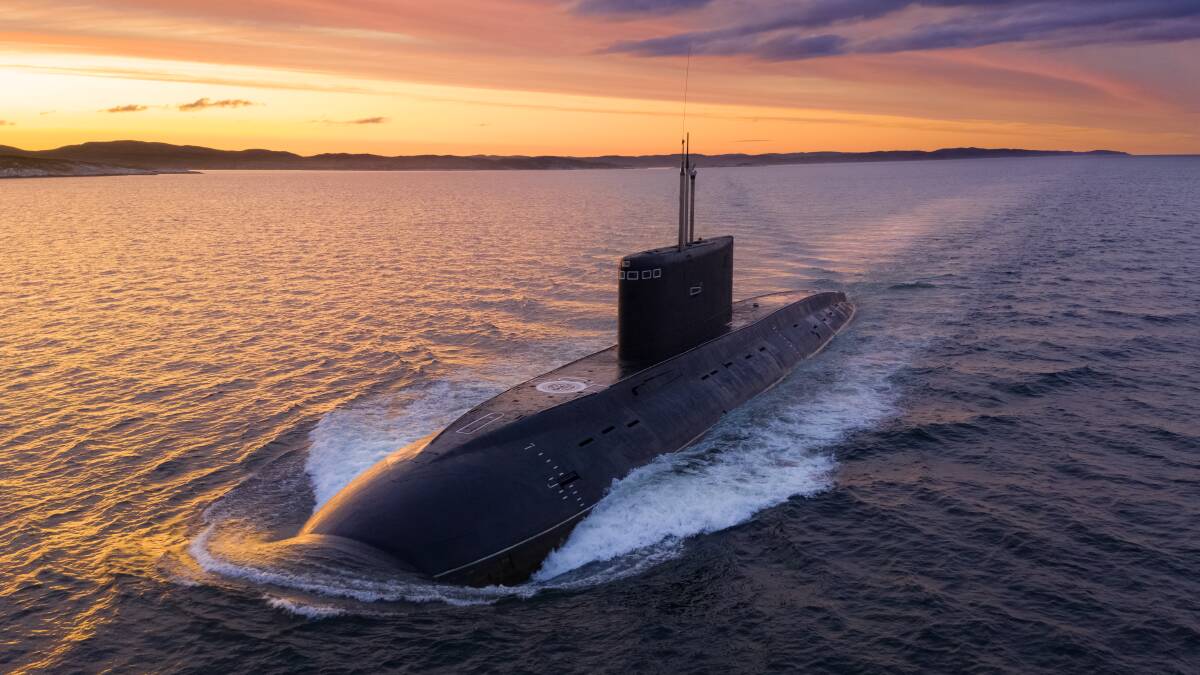In Australia, the benefits and risks of any new medicine are carefully assessed before qualifying for payment by the government. So it is pretty surprising to find the estimated $171 billion nuclear powered submarine proposal is not getting anywhere near the same scrutiny.
Subscribe now for unlimited access.
$0/
(min cost $0)
or signup to continue reading
These submarines represent much more than just a defence acquisition. They have major implications for Australia's foreign policy, for our ability to defend ourselves and for our relationships in the Pacific. Globally they risk undermining the nuclear non-proliferation treaty.
There has been very little in the mainstream media about these issues. It is being treated as a done deal. Where is the cost-benefit analysis?
Expert observers suggest the decision, supposedly due in March 2023, may be brought forward to September this year. This further reduces the opportunities for real discussion about the long-term risks.
The Morrison-Dutton subs plan was structured as a fait accompli. It was announced in the lead up to an election, and the ALP were given just 24 hours' notice to decide whether to support it or not.
A key risk is opening a loophole in the treaty safeguards. These subs are fuelled by highly enriched (weapons grade) uranium - HEU. The AUKUS deal enables HEU transfer from a nuclear weapons state to a non-nuclear weapons state. This is unprecedented, and opens a Pandora's box.
A number of other countries, including Japan, the Republic of Korea, Pakistan and Iran REF are all suddenly interested in using this loophole to acquire nuclear-powered subs. Each sub contains enough HEU to make approximately 20 nuclear weapons. Australia protests it will observe many safeguards, but the precedent is what matters.
Other countries will promise safeguards, but submarines provide a mobile "stealth" platform which is impossible to monitor over the decades submarines are in service. This risks undermining the NPT itself, by multiplying the number of countries who can acquire nuclear weapons.
The next major risk is that these submarines reduce our ability to defend ourselves. Yet again we are buying long-range aggressive weaponry, designed to join with US military actions. They are ill suited to Australia's relatively shallow northern waters.
Will the subs be obsolete by the time they are delivered? With accelerating developments in AI, satellites, blue-green lasers and underwater drones, submarines may well lose the stealth capacity that is their key selling point.
The cost of these submarines is another major risk. The US and UK submarine builds are both behind schedule and well over budget. Are we just subsidising the US navy's budget, helping them to set up part of their future fleet in Australia?
There are regional concerns this huge expenditure will spark an arms race. The subs certainly escalate regional tensions, with increased polarisation, militarisation and risk of war.

The proposal is always couched in terms of "security for Australians". But what actually makes us more secure? At a time when we lack sufficient funding in health care, aged care, public education, housing, closing the gap, the justice system and we face rising levels of poverty, are these huge acquisitions actually responsible?
Buying off the shelf submarines could do a lot towards "budget repair".
There are also environmental risks. At least six nuclear-powered submarines have sunk since 1963 (IAEA data). No accident data is publicly available since 2015, and worryingly the UK Defence Nuclear Security Regulator stopped allowing the public to access reports in 2017.
READ MORE:
The other massive environmental risk is the opportunity cost - what we could be doing instead. Imagine what a climate change task force of over 100 public servants working for 18 months with a budget of $171 billion could achieve.
These submarines reduce our ability to defend ourselves, further lock us into US determined conflicts and have many adverse impacts: globally, regionally and locally.
We desperately need close scrutiny and open debate about the effectiveness and many side effects of this nuclear submarine proposal, before any contracts are signed.
- Margaret Beavis is a former GP and co-chair of the International Campaign To Abolish Nuclear Weapons Australia. She is vice president of the Medical Association for Prevention of War.

